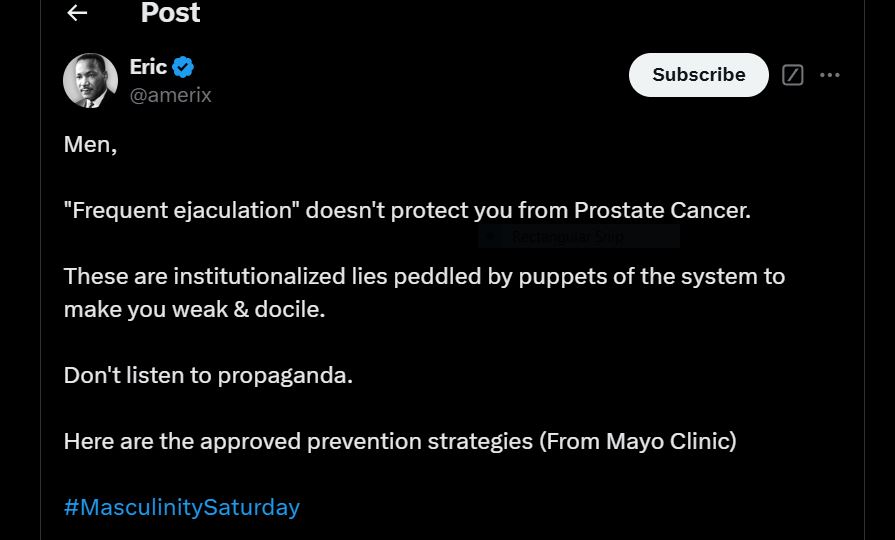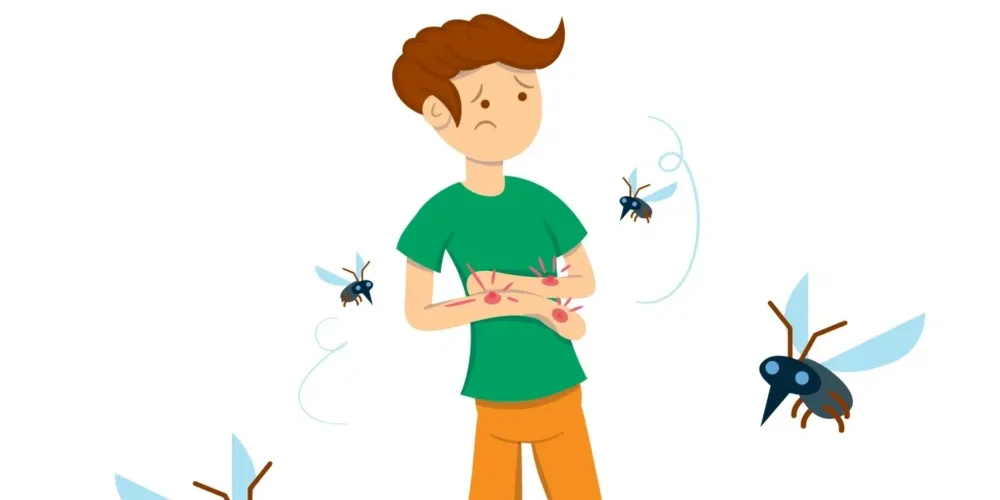FACT CHECK: Does frequent ejaculation reduce prostate cancer risk?
The Harvard Ejaculation Study found men with high ejaculation frequency had a 31% lower prostate cancer risk
Author
Author
- admin / 1 year

- 0
- 2 min read

Author
CLAIM:
Frequent ejaculation doesn’t prevent prostate cancer
FACT:
False. Frequent ejaculation lowers prostate cancer risk
A post by @Amerix on X (formerly Twitter), dismisses the claim that frequent ejaculation reduces the risk of prostate cancer. The post states, “Men, Frequent ejaculation doesn’t protect you from Prostate Cancer. These are institutionalized lies peddled by puppets of the system to make you weak & docile. Don’t listen to propaganda. (sic)”
Men,
"Frequent ejaculation" doesn't protect you from Prostate Cancer.
These are institutionalized lies peddled by puppets of the system to make you weak & docile.
Don't listen to propaganda.
Here are the approved prevention strategies (From Mayo Clinic)#MasculinitySaturday pic.twitter.com/XxHrYnHy8p
— Eric (@amerix) October 8, 2022
The tweet, which has sparked considerable debate, has amassed 1.4K likes and been retweeted 353 times.
What is the fact?
According to a study, The Harvard Ejaculation Study, involving 29,342 men, mostly white, “the scientists found no evidence that frequent ejaculations mark an increased risk of prostate cancer.”

“In fact, the reverse was true: High ejaculation frequency was linked to a decreased risk. Compared to men who reported 4–7 ejaculations per month across their lifetimes, men who ejaculated 21 or more times a month enjoyed a 31% lower risk of prostate cancer,” says the study.
Another study involving 2,338 Australian men, also reached the same conclusion. The study found that Australians who ejaculated most frequently enjoyed a reduced risk of prostate cancer.
“The effect was strongest for the frequency of ejaculations in young adulthood, even though prostate cancer was not diagnosed until many decades later,” the study highlights..
In yet another research titled, Sexual Factors and Prostate Cancer, ejaculatory frequency, especially in early adult life, is negatively associated with the risk of prostate cancer. Further, according to the New Scientist Magazine, “those who ejaculated more than five times per week in their twenties, for instance, were one-third less likely to develop aggressive prostate cancer later in life”.
Thus, claims pertaining to self-gratification increasing the risk of prostate cancer are unfounded.
Also read: Vibrators or lipsticks? How India’s sex toys navigate legal gray areas – First Check
Do you have a health-related claim that you would like us to fact-check? Send it to us, and we will fact-check it for you! You can send it on WhatsApp at +91-9311223141, mail us at hello@firstcheck.in, or click here to submit it online.









